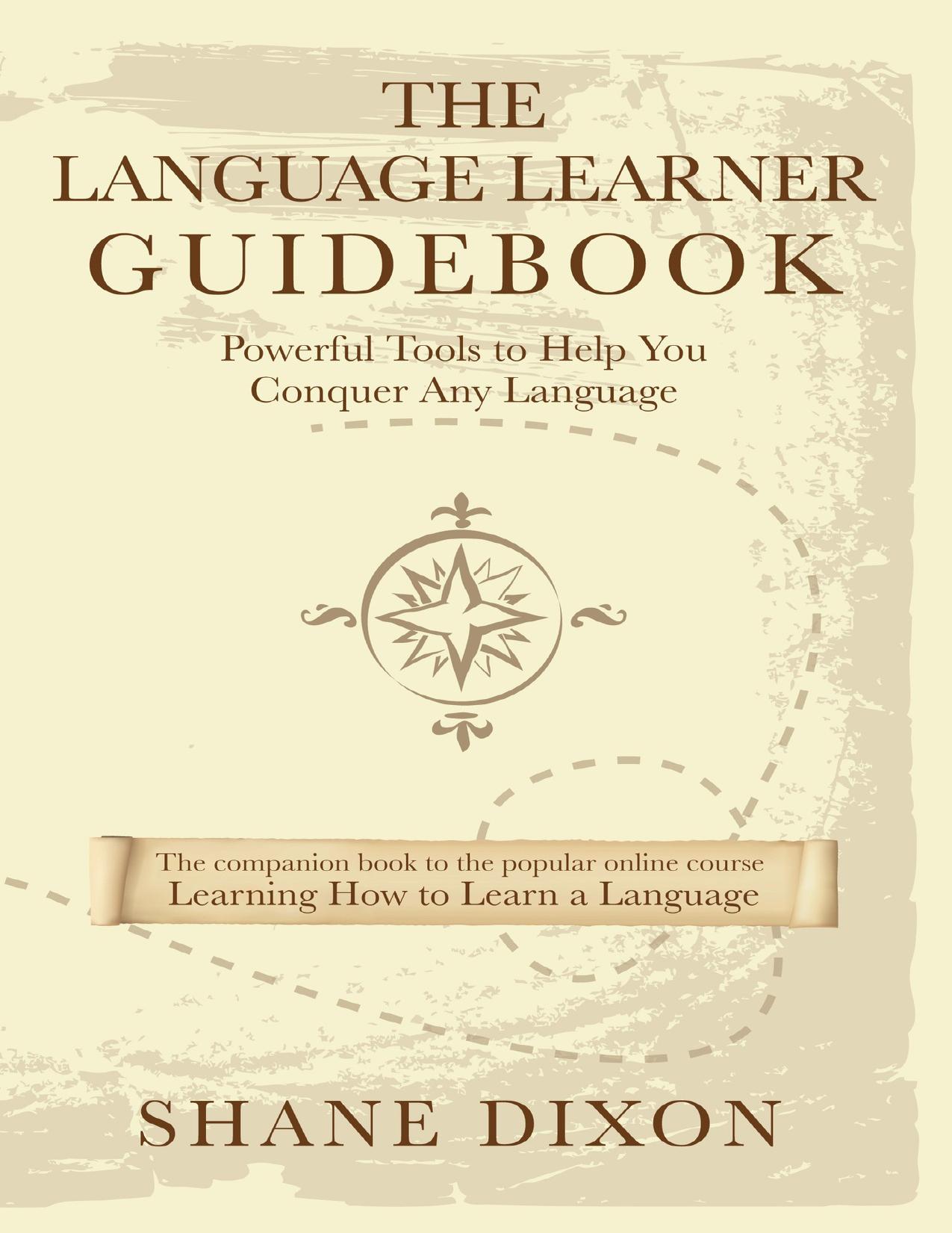The Language Learner Guidebook: Powerful Tools to Help You Conquer Any Language by Shane Dixon

Author:Shane Dixon
Language: eng
Format: mobi, pdf
Publisher: Wayzgoose Press
Published: 2018-11-19T00:00:00+00:00
LIST 2
Predicting, preparing, and performing (Section 2)
Monitoring their own language forms (Section 3)
Journaling and notetaking (Section 3)
Following fixed language tasks as assigned by the teacher (Section 4)
In short, the members of this particular group were meticulous in their ability to follow through with assignments, to predict what teachers wanted, and showed greater ability to follow through with feedback because of their constant attention to detail.
Now let’s talk about the disadvantages of each style. The Italian group, in their excitement to share their ideas and be creative in expressing those ideas, often lost the original intent of certain assignments, especially specific language objectives, and thus were a bit harder to corral, so to speak. Their dedication to focusing on their ideas meant that they were often less able or willing to adapt to those ideas, which led to less improvement from one performance to another.
Perhaps the simplest way I can explain it is this: the Italian group made WAY more mistakes than the Japanese group and didn’t realize or care that the mistakes were being made, as long as the message was communicated. Is that an advantage? Yes, in some ways. A disadvantage? Well, that too.
In contrast, the Japanese group, as a whole, was less willing to speak, but much more likely to get things right. This is likely why they scored higher on so many of our language assessments. They were paying attention to what we, as teachers, were asking them to do on the tests. However, here again, we see that there is an inherent disadvantage.
Perhaps the easiest way to explain this disadvantage was that sometimes the Japanese group never spoke English at lunch. While this may seem like a minor concern, it demonstrated a lack of putting into practice the very skills they were learning. In other words, sometimes they were so concerned about classroom performance that they did not translate their practice to functional performance, meaning performance in the real world and in real time…like speaking English during break times and over lunch.
So there are two main styles, and both exhibit advantages and disadvantages. Now what? There is no doubt that being like the Italian executives, with their desire to share and communicate, willingness to risk, and ability to convey and focus on meaning will be an advantage to you. However, you may find that you relate more to our Japanese executives, in which case, there are many attributes and strategies that can help you be a success. Having a primary style or disposition can certainly allow you the comfort to learn in your own way and in your own time and is something that you should feel good about.
However, while I do not recommend having you abandon your primary adult style, it is most certainly important to shore it up, or at least add to it. In other words, if you find that you are naturally a Japanese executive kind of learner, it is time for you to embrace your inner Italian. If you happen to
Download
The Language Learner Guidebook: Powerful Tools to Help You Conquer Any Language by Shane Dixon.pdf
This site does not store any files on its server. We only index and link to content provided by other sites. Please contact the content providers to delete copyright contents if any and email us, we'll remove relevant links or contents immediately.
Housekeeping by Marilynne Robinson(4445)
Papillon (English) by Henri Charrière(4273)
The Poetry of Pablo Neruda by Pablo Neruda(4105)
World without end by Ken Follett(3476)
TCP IP by Todd Lammle(3183)
Fluent Forever: How to Learn Any Language Fast and Never Forget It by Gabriel Wyner(3083)
The Rape Of Nanking by Iris Chang(2821)
How Proust Can Change Your Life by Alain De Botton(2812)
The Alchemist by Paulo Coelho(2693)
The Partner by John Grisham(2396)
Two lives by Helen Naylor(2301)
Hitler by Ian Kershaw(2197)
Yerma by Federico García Lorca(2068)
Sophie's World by Jostein Gaarder(2018)
Smilla's Sense of Snow by Peter Hoeg(1942)
Merriam-Webster's Pocket Dictionary by Merriam-Webster(1933)
Twilight of Idols and Anti-Christ by Friedrich Nietzsche(1893)
Il cavaliere inesistente by Italo Calvino(1856)
Deep Writing by Eric Maisel(1820)
